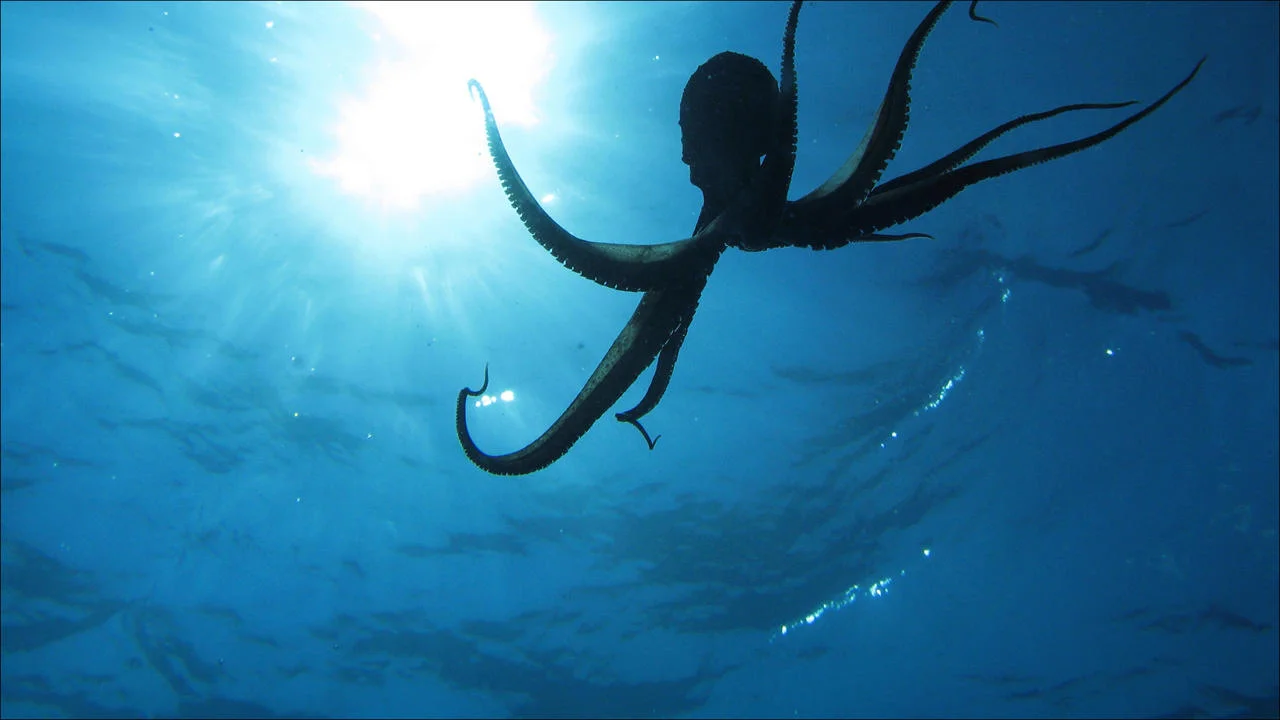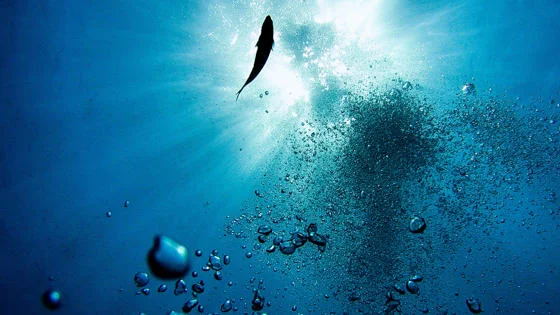The science of feeling: why octopuses, lobsters and crabs require animal welfare protection

Contents
When My Octopus Teacher won Best Documentary Academy Award at the 2021 Oscars, the idea that octopuses could have emotions went mainstream. For some, the portrayal encouraged a more empathetic view of a creature that had, until then, been considered as primarily a delicacy to enjoy.
One person for whom the film’s message was no surprise, however, is Dr Jonathan Birch. An Associate Professor of Philosophy at LSE, and the principal investigator on the Foundations of Animal Sentience project, Dr Birch has long been exploring the subject of whether animals can feel. The project aims to answer two main questions: how do we study sentience scientifically; and how can the science of animal sentience help design better policies, laws and ways of caring for animals?
Due to conclude in 2025, it has already led to significant findings and a change in UK law, with the government announcing in November 2021 that animal welfare protections were to be extended to cephalopod molluscs and decapod crustaceans – including octopuses, lobsters and crabs – as a result of Dr Birch’s findings that these animals are sentient.
[Animals] might simply react in a different way than we would as humans - and so we have to look in a careful way for behavioural and cognitive and neural markers that we have some credible reason to think are linked to feelings.
How can we know if animals have feelings?
To be sentient means to have the ability to feel, explains Dr Birch, and can encompass anything from basic bodily sensations to more complicated emotions. "I view sentience as the capacity to have feelings – for example happiness, pain, pleasure, comfort, thirst, hunger, warmth," he says. "Crucially, that doesn't mean you have to have the capacity to reflect on your feelings in the way that human beings do, nor do you have to have the capacity to understand the feelings of others – these are more sophisticated abilities."
The issue of how we can know how animals feel, and if different animals feel differently, is at the heart of Dr Birch’s research. "This is a question that has some philosophical elements and some scientific elements, and that blurs the boundaries between science and philosophy in a way that I like," he says.
"With animals, we can't just observe their feelings directly – they might not be feeling as we would or might simply react in a different way than we would as humans - and so we have to look in a careful way for behavioural and cognitive and neural markers that we have some credible reason to think are linked to feelings. In our report to the UK government, we used eight scientific criteria."
Some of those criteria addressed whether the animal’s nervous system could support sentience. For example, can it detect harmful stimuli and transmit those signals to the brain? Are the signals processed in integrative brain regions - parts of the brain that bring together information from many different sources? Or do anaesthetics or painkillers change the nervous system response?
The other criteria focus on the animal’s behaviour. Could they trade-off risks of injury against opportunities for a reward? Do they tend to the specific site of an injury, and could they learn to avoid stimuli associated with injury? Do they value anaesthetics or painkillers when injured? This sort of behaviour, which distinguishes rigid and reflex reactions to injury from flexible responses, is taken to be evidence of pain in vertebrates, argues Dr Birch.
No single criterion proves that a creature is sentient, he stressed. But the more criteria it meets, the more likely sentience becomes.
There is a danger that we decide that the animals we empathise with are the ones that feel, and the ones we struggle to empathise with, like invertebrates, don't feel. And it's certainly not that simple.
Welfare protections for octopuses and lobsters and crabs: changing UK law
Although the concept of animal sentience is not new, the idea of bringing sentience into legislation is a relatively modern one. "Governments have only recently started using sentience in laws," Dr Birch explains. "For example the EU's Lisbon Treaty in 2008 recognises animals as sentient beings. That idea - that sentience should be not just something we wonder about, but a concept that we put at the heart of our ethical theories and write into law in certain ways – is a fairly new one."
More recently, Dr Birch’s research has been fundamental in ensuring greater welfare protection for octopuses, crabs and lobsters, with his findings persuading the UK government to extend the scope of its Animal Welfare (Sentience) Bill to include all decapod crustaceans and cephalopod molluscs.
Dr Birch led the government-commissioned independent review which led to the law change. Drawing on over 300 existing scientific studies, the review concluded that cephalopods (including octopuses, squid and cuttlefish) and decapods (including crabs, lobsters and crayfish) should be regarded as sentient, and therefore be included within the scope of animal welfare law.
Dr Birch’s findings have implications for current commercial practices around these animals. Having established that these animals can feel, he calls for a ban on declawing (removing a crab’s claws before throwing it back into the sea) and extreme methods of slaughter such as live boiling without stunning. Instead, Dr Birch recommends that only trained, expert handlers should be authorised to buy live decapod crustaceans, and that best practice should be developed around transport, stunning and slaughter to ensure they are treated as humanely as possible.
Why we need to look beyond the animals we empathise with
UK law may have changed for some animals, but do Dr Birch’s findings suggest that we may also be getting things wrong in our approach to other animals? While many would agree that battery-farmed chickens aren’t treated well, for example, insect farms, which see millions of insects packed tightly into small spaces before putting them through shredders, rarely tend to elicit the same condemnation.
"Because we can’t just look at an animal and know if or what they are feeling, there is a danger that we decide that the animals we empathise with are the ones that feel, and the ones we struggle to empathise with, like invertebrates, don't feel," Dr Birch agrees. "And it's certainly not that simple. We need to look for ways to move beyond our own emotional responses to these animals and instead look at the evidence about what is actually going on in them."
It is questions like this that Dr Birch continues to explore. With three more years of the Foundations of Animal Sentience project he hopes that the science of animal sentience will continue to develop, stressing that there are still many unanswered questions around what we understand about animal sentience and how the law can best protect all creatures who feel.
"The idea of banning people from treading on insects, for example, would be completely impractical and unenforceable," he says. "Nonetheless, there are real issues about insect farming that are currently outside the scope of animal welfare legislation.
"I think we have to ask, If we uncover evidence that points towards some insects having feelings, should they really be completely beyond the reach of animal welfare law, or should we be trying to think about ways in which we could formulate some practical, sensible, proportionate regulations to make sure that people are not just gratuitously torturing insects? These are all questions that I think deserve our attention."
The LSE iQ podcast episode can also be heard on LSE Player.
Dr Jonathan Birch was speaking to Jess Winterstein, Acting Head of Media Relations at LSE.
Download a PDF version of this article




